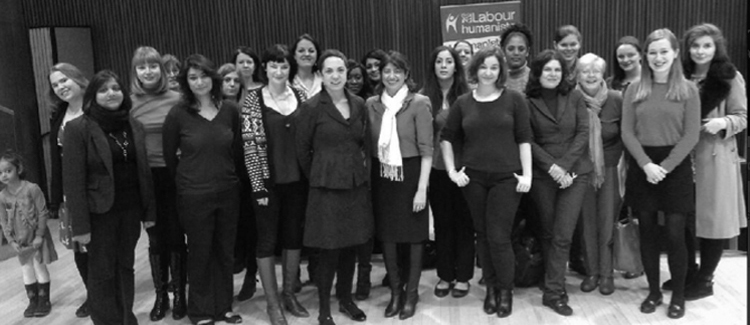Why it matters: ten years of the Fabian Women’s Network
I feel very privileged to chair the Fabian Women’s Network in these fascinating times: women are still making advances in every country and in every sector. Over the past decade a lot has been achieved in terms of women’s rights...
I feel very privileged to chair the Fabian Women’s Network in these fascinating times: women are still making advances in every country and in every sector. Over the past decade a lot has been achieved in terms of women’s rights and many other aspects of society. The next President of the US might be Hillary Clinton; the chief of EU foreign policy is Federica Mogherini, preceded by Baroness Ashton. Young women like Malala Yousafzei inspire millions across the globe and so do leaders like the President of Chile, Michele Bachelet. Female scientists, lawyers and judges are reaching the top, and boardrooms of large companies are – slowly – becoming more diverse. All this is happening, and it is thrilling.
However – there is another side, a much darker one.
Since The Great Recession hit in 2008, the 1% have only grown richer while the rest find life increasingly tough. The gap between the haves and the have-nots has widened. And women are at the sharp end of this. When the public sector shrinks, when inequality surges, and when policies are pursued that do nothing to tackle this, then women bear the brunt. It has happened in our country, where 52% of the UK population – women – have been hit by 85% of the pain. At the very same time, the wealthiest have received tax cuts.
This is why now more than ever before, the feminist movement is bound up with the need for a radical agenda to tackle the unequal distribution of wealth, power and resources more generally. And now, more than ever, the energy required to fight the global challenges we are facing is located in the stamina, radicalism and innovation of the feminist agenda.
Feminism has always been about transformation – be it in the family or more widely. It has always been about revolutionising the traditional hierarchies and shaking up societies. Politics needs that energy now to challenge the way we have been doing things over the last decades. Business as usual is no longer an option. With houses now treated as commodities and not homes for people to live in; with our high streets hollowed out by international corporations – being the only ones that can afford the sky high rents; with the younger generation struggling for any sense of security or achievement – the rules of the game need to change. Not by invoking isolationism, shutting the doors to the rest of the world and blaming globalisation (or immigration) for where we have got to.
Quite the contrary. The changes we need require a global approach, and the courage to affirm that an economy works where work – and its dignity – are at its very heart. It requires the energy to turn our State into an enabler of growth, an entrepreneur able to support innovation and research. Most important, it needs to make work pay for everybody so that people’s money can go further at the end of the month.
Let me say again that feminism is meshed with all the above –To me, feminist policy in modern times is about a radical transformation of the allocation of power, whether that is in families, institutions, the media or the wider economy. It has many parallels with the Left’s ambition to reform the distribution of power, be it economic, cultural or political, by giving far more of it to the people. And more than anything, power means presence – in workplaces, in politics and in society. Power means upskilling those thousands of people – including a great many women– who have been hit by the growing impact of technology, so that they win back their place in the market. Having more women in company boardrooms is not just about recognising that 52 per cent of the population is female. It is about embracing a new culture of corporate governance, less focused on high risk and more orientated towards long-term stability and sustainable growth. Having more women in politics, likewise, is about changing the way we do things and the way we run our institutions.
Finally, power means retrieving control over women’s bodies. The Labour party should work with campaigners to put a stop to the hyper-sexualisation of our society, which for women and arguably men too has gone from a liberating starting point to become a new all-pervasive form of slavery that we are forced into from an earlier age every year. Even unborn babies have now joined the newspaper galleries of celebrity flesh, in the cult of exposure.
It is not by chance that the issue of power over our own bodies is the topic which has most galvanised younger generations of women.
This is why the Fabian Women’s Network is important – because it is no longer about “women’s” policies, women’s stuff. It is about what we need to make the economy and society work so we can enthuse people to believe politics can still achieve and change the world for the better.
The Fabian Women’s Network’s publication, ‘Ten Years On‘ is available to read online here.

